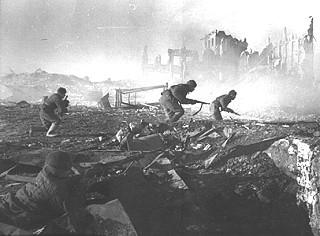
Enemies at the Gate
Jay Rosen has some interesting points here.
Web Users Open the Gates
By Jay Rosen
Special to washingtonpost.com
Monday, June 19, 2006; 12:00 AM
A decade after major news providers such as The Washington Post began publishing on the Internet, they are finally beginning to ask the right questions about what the Web can do for them and their readers -- and to realize how disruptive web technology is to traditional journalism.
Big guns such as the Associated Press's chief executive, Tom Curley, have admitted that the industry seriously fumbled its new media strategy for years by opting to re-purpose material produced to serve print and broadcast audiences.
Only recently has it begun to respond to the decisive, Internet-driven shift in the "balance of power" between news providers and readers by striving to deliver news "on-demand" and by developing truly interactive reports, Curley told the Online News Association in 2004.
"When the Web was born as a commercial content enterprise back in the mid-'90s, we thought it was about replicating -- that is, 'repurposing' -- our news and information franchises online," Curley said. "The news, as 'lecture,' is giving way to the news as a 'conversation'."
...............
The Net exploded the universe in press criticism. A decade ago, six letters and two phone calls from readers in response to a three-part series that took months to report was considered "good" feedback. Today, a big story commonly brings in 500 to 1,000 e-mails. It's not just the volume, but who is speaking up. Today there is much more criticism of the press from outside the club of mainstream journalists. This changes the kind of explanations that will wash in forums like the Washington Post's live online discussions with reporters, where -- under tightly controlled conditions -- journalists reply to skeptical users.
Heavy consumers of online journalism also effectively fact-check, cry foul and push back with weblogs and other tools. That's an environment of critical scrutiny unknown to most journalists pre-1996. Of all things bloggers have tried to do, their criticism of the news media has probably made the biggest difference in the business.
The Net has exposed group think in journalism. The strongest motivation I had in starting PressThink (my one-person magazine of press criticism) was to circumvent the gatekeepers in the national discussion. I was tired of passing my ideas through editors who forced me to observe the silences they kept as professional journalists.
The day after President Bush was re-elected in 2004, I suggested suggestedon my blog that at least some news organizations should consider themselves the opposition to the White House. Only by going into opposition, I argued, could the press really tell the story of the Bush administration's vast expansion of executive power.
That notion simply hadn't been discussed in mainstream newsrooms, which had always been able to limit debate about what is and isn't the job of the journalist. But now that amateurs had joined pros in the press zone, newsrooms couldn't afford not to debate their practices. This is disruptive because if the unthinkable cannot be ignored, professional correctness loses its power.
A Pulitzer-prize winning media columnist at the Los Angeles Times, David Shaw, denounced my suggestion after reading about it at Romenesko, an online gathering spot for journalists. He quoted CNN staffers as saying what a terrible idea opposition press would be. Are you nuts? It would instantly destroy our credibility!
But my question was: Why has no major news organization tried to build up credibility as the oppositional (but relentlessly factual) network the way Fox News built credibility as a Bush-friendly channel, which capably won the ratings for its coverage of the 2004 Republic National Convention? After all, the target audience -- cable watchers from "blue"America -- comprised at least 40 percent of the overall market, plus anyone from the right who would tune in for the outrage factor. Prior to the Internet, the idea that an opposition press could have value would simply have been ignored.
No comments:
Post a Comment